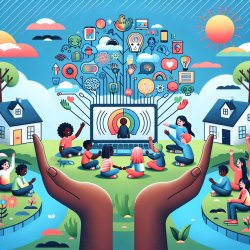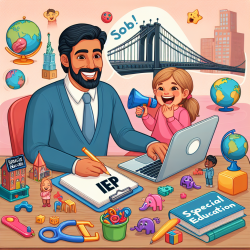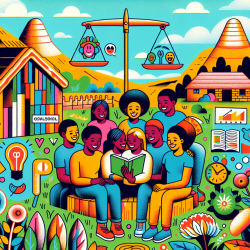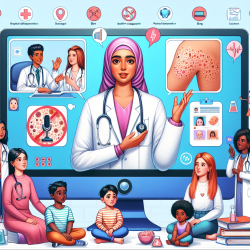In the ever-evolving landscape of healthcare and education, the integration of online therapy services has become a beacon of hope and progress for communities across the globe. As we navigate through the complexities of providing equitable access to therapy for children, it is imperative that we, alongside government health regulators, recognize the transformative power of digital therapy platforms like TinyEYE. This approach not only redefines what is possible in supporting our children's developmental needs but also empowers communities to reach a state of self-actualization.
The journey towards self-actualization, particularly in the context of community health and well-being, demands innovative solutions that break down barriers to access. Online therapy services have emerged as a critical tool in this quest, offering flexible, efficient, and effective support to children in need. By harnessing the potential of digital platforms, we are able to extend our reach far beyond traditional boundaries, ensuring that every child, regardless of their geographical location or socio-economic status, has the opportunity to thrive.
For government health regulators, the adoption and support of online therapy services present an unparalleled opportunity to foster a more inclusive and resilient healthcare ecosystem. The serious responsibility of ensuring the well-being of our communities requires a forward-thinking approach that embraces technology as a means to enhance the quality and accessibility of care for children. This is not merely about meeting the immediate needs of our youngest citizens; it is about laying the foundation for a healthier, more empowered future.
The theme of community is at the heart of why services like TinyEYE are so vital. In many areas, the scarcity of qualified therapists poses a significant challenge, leaving many children without the support they need to navigate their developmental journeys. Online therapy bridges this gap, creating a network of support that is not confined by physical limitations. This model of care fosters a sense of belonging and community among children, therapists, educators, and families, united in their goal of achieving the best possible outcomes for every child.
The impact of online therapy extends beyond individual success stories. It inspires a collective movement towards a society where every child has the tools and support they need to reach their full potential. As government health regulators, embracing and facilitating the growth of online therapy services is a testament to our commitment to the well-being of our communities. It is a call to action that we must heed with urgency and dedication, for the sake of our children and the future we wish to build together.
In conclusion, the path to self-actualization for our communities is paved with the bricks of innovation, inclusivity, and unwavering support for our children. Online therapy services like TinyEYE are at the forefront of this journey, offering a glimpse into a future where every child can access the therapy they need to thrive. It is a future we can achieve together, inspired by the possibilities that lie within our collective effort to embrace and integrate digital solutions into our healthcare framework.










